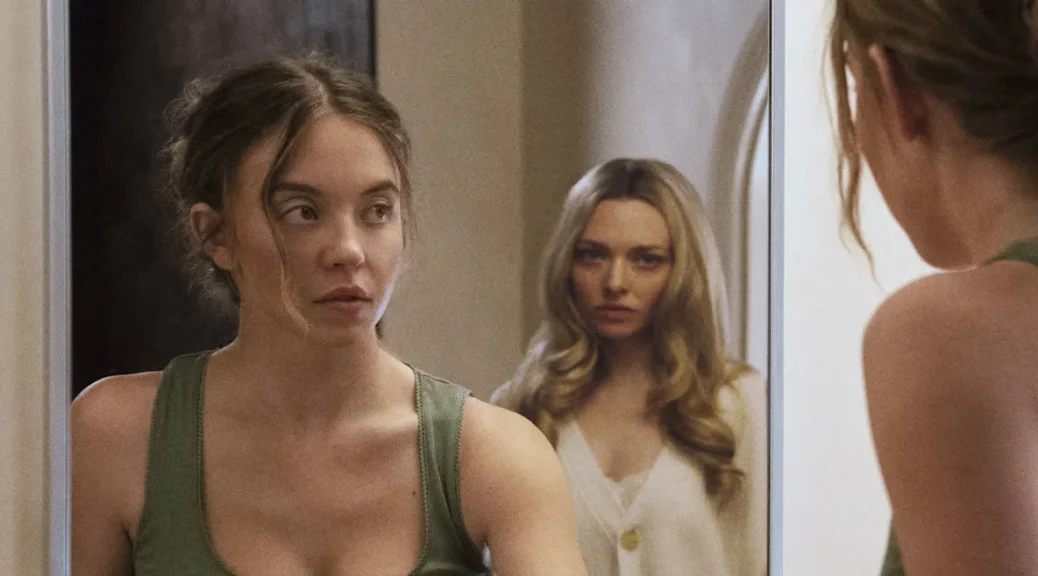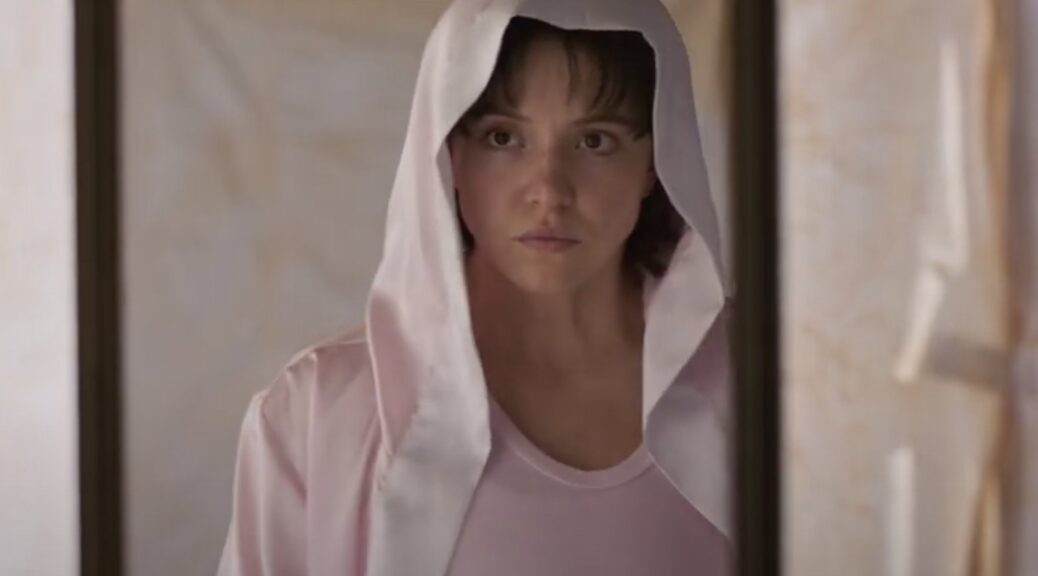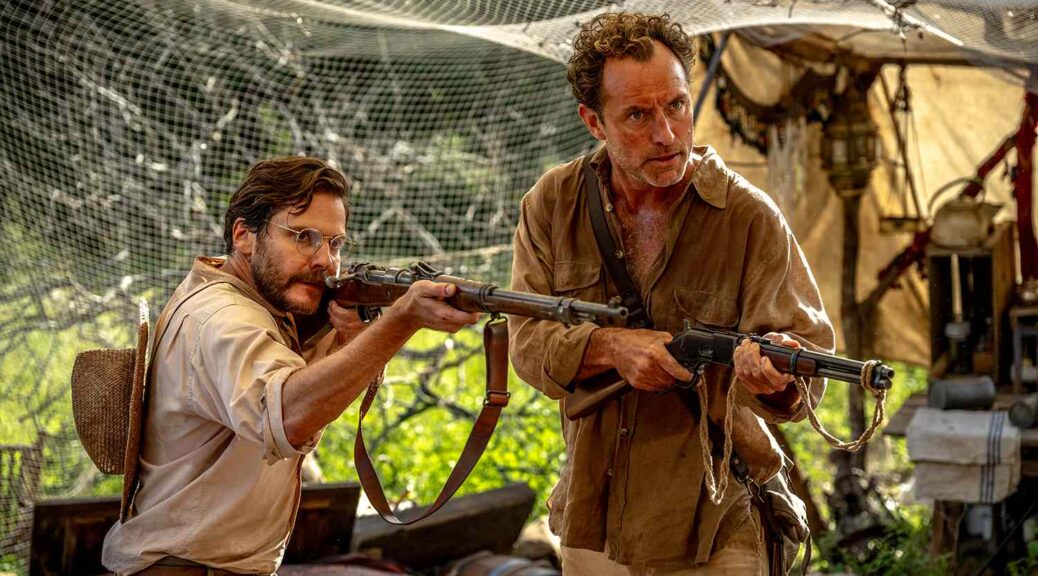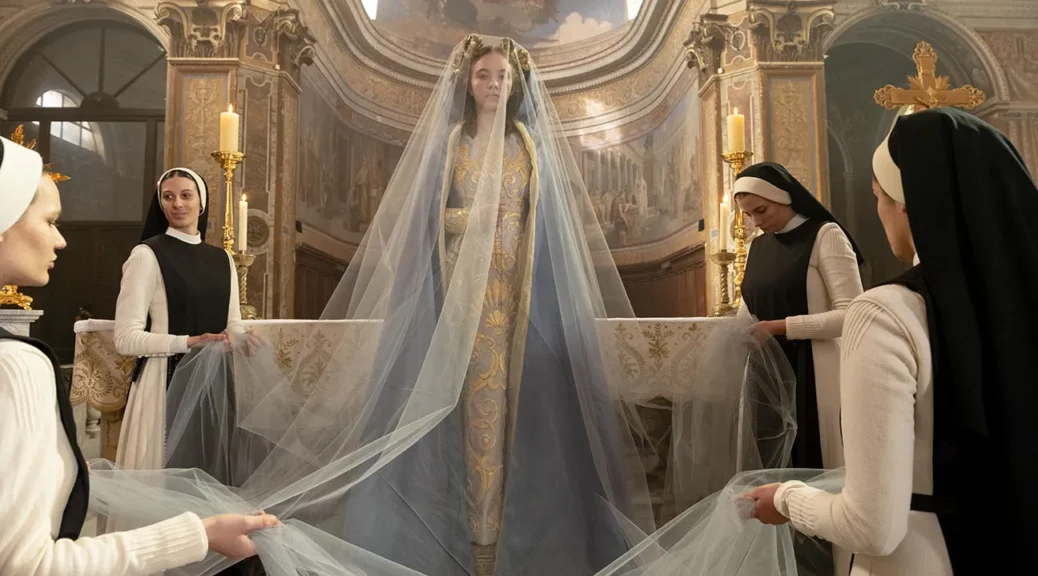The Housemaid
by Hope Madden
I am generally down for a pulpy thriller where unreasonably attractive humans behave like lunatics. The Housemaid is one such film, and though I was somewhat skeptical, seeing Paul Feig at the helm instilled optimism.
Feig’s 2011 comedy Bridesmaids is an all-time great, but it was his 2018 twisty comedy/thriller A Simple Favor that gave me hope. Sure, The Housemaid’s trailer seemed boilerplate enough. A stunning thirty-something (Amanda Seyfried), wealthy beyond reason, wants to hire a down-on-her-luck twenty-something (Sydney Sweeney) for a live-in housemaid. A gorgeous husband (Brandon Sklenar) looks on. An equally gorgeous groundskeeper (Michele Morrone) looks on, just from out in the lawn.
The fact that both women are gorgeous, curvy blondes with enormous eyes suggests something doppelganger-y afoot, but beyond that, there are really only a few directions this can take. With Feig on board, I felt confident it wouldn’t be misogyny masquerading as a cat fight.
Seyfried’s always reliable, and the trailer put me in the headspace of her star turn in Atom Agoyan’s 2009 thriller, Chloe. Except now Seyfried’s in Julieanne Moore’s place, and Sweeney’s in Seyfried’s.
Or is she? Maybe I was assuming too much.
Rebecca Sonnenshine (who co-wrote one of my favorite zombie films, American Zombie) adapts Freida McFadden’s novel with enough sly scene craft to keep you interested. Every scene is a sleight of hand, and Feig’s assured direction flirts with potboiler so often that you’re seduced away from confident guesswork.
It’s a long game Feig is playing, but still, The Housekeeper takes too long getting there. Act 3, which is a ton of fun, feels too abrupt given the lead time to get to it. And everything post-climax is anything but airtight.
The Housemaid is an enjoyable thriller, a savvy reimagining of a tired plot we’ve seen dozens of times. The cast is solid, performers delivering sharp drama while Feig delivers pulp, the balance off kilter enough to be fun.








